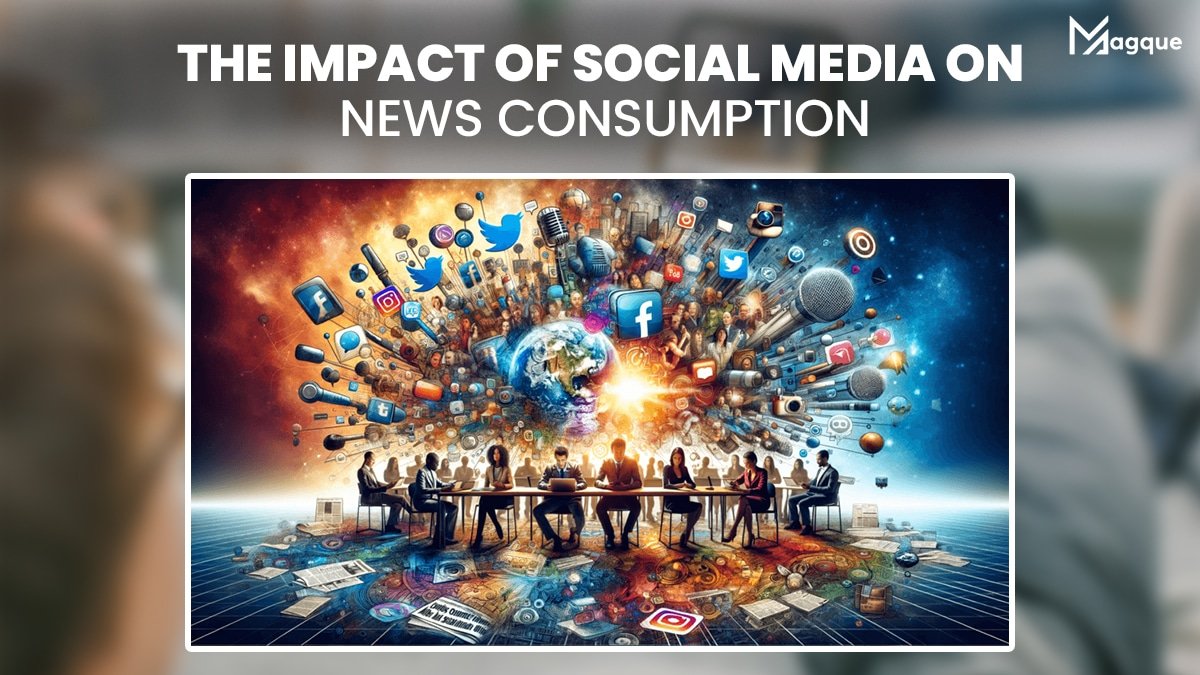Hey there, curious minds! Have you ever thought about how scrolling through your social media feed affects how you consume news? It’s fascinating when you dive into it.
Social media platforms have become more than just a place to connect with friends and share memes; they’ve evolved into influential hubs of information dissemination. But what exactly is social media’s impact on news consumption? Let’s break it down.
Changing Habits and Trends
Picture this: You wake up in the morning, reach for your phone, and the first thing you do is check your social media apps. Sound familiar? You’re not alone. Social media has become the go-to source for breaking news and updates for millions around the globe.
But here’s the kicker: the way we consume news has shifted dramatically. Instead of sitting down with a cup of coffee and reading the morning paper, we’re now bombarded with headlines and snippets of news as we scroll through our feeds. It’s like a never-ending stream of information constantly updating and evolving.
Influencing Perspectives
Now, let’s talk about how social media influences our perspectives. With algorithms tailored to our interests and preferences, we’re more likely to be exposed to news that aligns with our beliefs. This creates what some call a “filter bubble,” where we’re insulated from opposing viewpoints.
But it’s not all doom and gloom. Social media also has the power to expose us to diverse perspectives and alternative narratives that we might not encounter otherwise. It’s like having access to a virtual melting pot of ideas and opinions.
The Rise of Citizen Journalism
One of social media’s most significant impacts on news consumption is the rise of citizen journalism. Anyone with a smartphone and an internet connection can become a reporter, capturing and sharing news in real-time.
This democratization of news has its pros and cons. On one hand, it allows for greater accessibility and transparency, giving voice to marginalized communities and shining a light on underreported stories. On the other hand, it can lead to misinformation and the spread of fake news, as unchecked sources blur the line between fact and fiction.
Navigating the Digital Landscape
So, how do we navigate this digital landscape of social media and news consumption? It all boils down to critical thinking and media literacy. We need to approach the information we encounter with a healthy dose of skepticism, fact-checking sources and verifying information before sharing it.
At the same time, we shouldn’t underestimate the power of social media as a force for good. It has the potential to amplify voices, foster community engagement, and spark meaningful conversations about the issues that matter most.
In conclusion, the impact of social media on news consumption is undeniable. It’s changed how we access, consume, and engage with information, for better or worse. But ultimately, it’s up to us to harness the power of social media responsibly, using it as a tool for education, empowerment, and positive change.
So, next time you’re scrolling through your feed, take a moment to think about the stories behind the headlines and the voices behind the posts. After all, in the digital age, we all have a role to play in shaping the future of news consumption. And be sure to explore Magque, your go-to source for the latest and most intriguing updates in the realms of informative tips & reviews!
FAQs:-
1. How has social media changed the way we consume news?
Social media has revolutionized news consumption by providing instant access to breaking news and updates through our social feeds. Instead of relying solely on traditional sources like newspapers or TV, we now turn to platforms like Twitter and Facebook for real-time information.
2. Does social media influence our perspectives on current events?
Social media can influence our perspectives by curating our news feeds based on our interests and beliefs. This can create a “filter bubble,” where we’re exposed to news that aligns with our views, potentially limiting our exposure to diverse perspectives.
3. What role does citizen journalism play in news consumption on social media?
Citizen journalism has become increasingly prominent on social media, allowing anyone with a smartphone to report and share news in real time. While this democratization of news can lead to greater accessibility and transparency, it also raises concerns about spreading misinformation.
4. How can we navigate the influx of information on social media responsibly?
It’s essential to approach information on social media with critical thinking and media literacy. Fact-checking sources, verifying information, and being mindful of biases can help us responsibly navigate the digital landscape of news consumption.
5. What are some potential benefits and challenges of social media’s impact on news consumption?
Social media’s effect on news consumption has both advantages and challenges. On one hand, it offers greater accessibility to information and amplifies diverse voices. On the other hand, it can contribute to spreading misinformation and the erosion of trust in traditional media sources. It’s crucial to recognize and address these complexities as we navigate the evolving landscape of news consumption.
Read Also This:- Impact of Social Media on News Consumption












